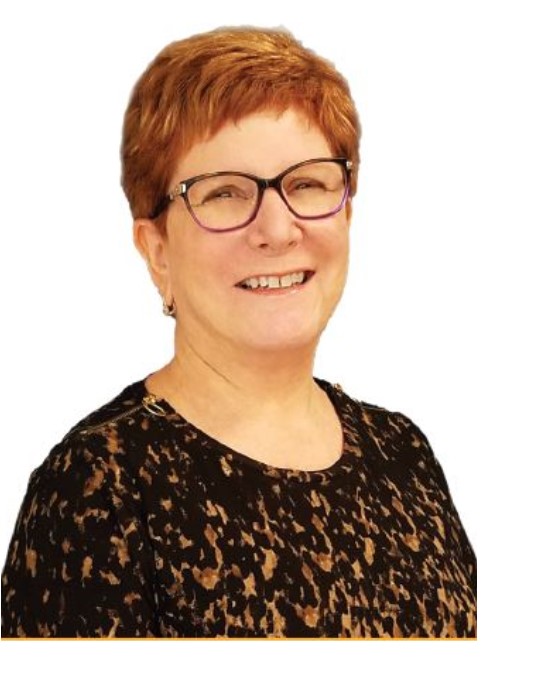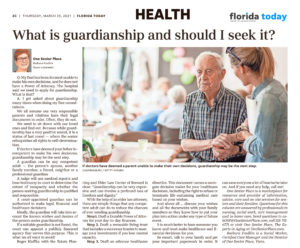
 Barbara Fradkin – Special to FLORIDA TODAY
Barbara Fradkin – Special to FLORIDA TODAY
Reader Question: My Dad has been deemed unable to make his own decisions, and he does not have a Power of Attorney. The hospital said we need to apply for guardianship. What is that?
Answer: I get asked about guardianship many times when doing my free consultations.
 We all assume our very responsible parents and relatives have their legal documents in order. Often, they do not.
We all assume our very responsible parents and relatives have their legal documents in order. Often, they do not.
We need to sit down with our loved ones and find out. Because while guardianship has a very positive sound, it is a status of last resort — where the senior relinquishes all rights to self-determination.
If doctors have deemed your father incompetent to make his own decisions, guardianship may be the next step.
A guardian can be any competent adult — the person’s spouse, another family member, a friend, neighbor or a professional guardian.
A judge will use medical reports and hear testimony in court to determine the extent of incapacity and whether the person seeking guardianship is qualified and responsible.
A court-appointed guardian can be authorized to make legal, financial and healthcare decisions.
Ideally, the guardian will take into account the known wishes and desires of the person under guardianship.
If a suitable guardian is not found, the court can appoint a publicly financed agency that serves this purpose. This is what we all want to avoid!
Roger Klaffka with the Estate Planning and Elder Law Center of Brevard is clear: “Guardianship can be very expensive and can involve a profound loss of freedom and dignity.”
With the help of an elder law attorney, there are simple things that any competent adult can do to reduce the chances of ever needing guardianship.
Step 1. Draft a Durable Power of Attorney for your day-to-day finances.
Step 2. Draft a revocable living trust that includes a successor trustee to manage your investments if you lose mental capacity.
Step 3. Draft an advance healthcare directive. This document names a surrogate decision maker for your healthcare decisions, including the right to refuse or terminate life-sustaining medical care based on your wishes.
And above all … discuss your wishes and all the documents with your family members so they know how to put your plan into action under any type of future event.
It is much better to have someone you know and trust make healthcare and financial decisions for you.
Be smart, talk to your family and get your important paperwork in order. It can save everyone a lot of heartache later on. And if you need any help, call me!
One Senior Place is a marketplace for resources and provider of information, advice, care and on-site services for seniors and their families. Questions for this column are answered by professionals in nursing, social work, care management and in-home care. To submit a question, send an email to askOSP@OneSeniorPlace.com or visit One Senior Place, The Experts in Aging at OneSeniorPlace.com.
Barbara Fradkin is a Social Worker, Certified Care Manager and the Director for One Senior Place, Viera.


